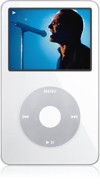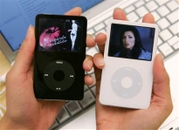Why Cisco is smart buying a cable box maker Scientific Atlanta

On 11/18/05, Cisco announced that it is buying the cable box maker Scientific-Atlanta for $6.9billion. Cisco is the leader in routers and switches, which connects networks together on the Internet. So why has Cisco bought consumer router maker Linksys and now a cable box maker? They're moving to the consumer side of business, and by buying up Scientific-Atlanta, it gets Cisco into the cable provider market. They know IP-based infrastructure, and positioning themselves to move into the consumer side of the business gets them closer to being the network infrastructure provider in businesses as well as in the home. This deal allows Cisco to push the IPTV (internet protocol television) gear to cable companies, phone companies, and media. More and more people are getting their media entertainment online and IPTV has the potential to be a global major market, so with Cisco boxes that serve as access points for businesses and home entertainment, they're looking toward the future.
continue reading article (and/or view comments)...
 Portable video for the masses essentially started with the release of
Portable video for the masses essentially started with the release of  CBS, NBC, ESPN, ABC, Pixar, are all eager to repackage their programming to your iPod. Even Google, Microsoft, and Yahoo are getting into the game with their video search and download capabilities. Consumers weren't sure how useful cell phones with cameras were, and now that they're pretty much accepted that your new cell phone will have a camera, video on-demand for your cell is not far from the future.
CBS, NBC, ESPN, ABC, Pixar, are all eager to repackage their programming to your iPod. Even Google, Microsoft, and Yahoo are getting into the game with their video search and download capabilities. Consumers weren't sure how useful cell phones with cameras were, and now that they're pretty much accepted that your new cell phone will have a camera, video on-demand for your cell is not far from the future.
 Steve Case, the AOL founder has started a new company called Revolution LLC to focus on the benefits in health care, living and resorts and the opportunity to invest in businesses that have a bright future. Revolution is a private holding company that Case is funding with $500 million of his estimated $825 million fortune and that will invest in health care, wellness, and resorts.
Steve Case, the AOL founder has started a new company called Revolution LLC to focus on the benefits in health care, living and resorts and the opportunity to invest in businesses that have a bright future. Revolution is a private holding company that Case is funding with $500 million of his estimated $825 million fortune and that will invest in health care, wellness, and resorts.
 Initially, Revolution will focus on three domains: resorts, living and health. However, the Revolution approach lends itself to many other sectors, and over time Revolution will expand its focus. Indeed, we have already acquired the rights to the Revolution name for more than 50 other domains, to maximize our flexibility, and to leverage the Revolution brand name across many sectors. But for now, we'll focus on resorts, living and health, as we believe each represents a multi-billion dollar opportunity.
Initially, Revolution will focus on three domains: resorts, living and health. However, the Revolution approach lends itself to many other sectors, and over time Revolution will expand its focus. Indeed, we have already acquired the rights to the Revolution name for more than 50 other domains, to maximize our flexibility, and to leverage the Revolution brand name across many sectors. But for now, we'll focus on resorts, living and health, as we believe each represents a multi-billion dollar opportunity.



